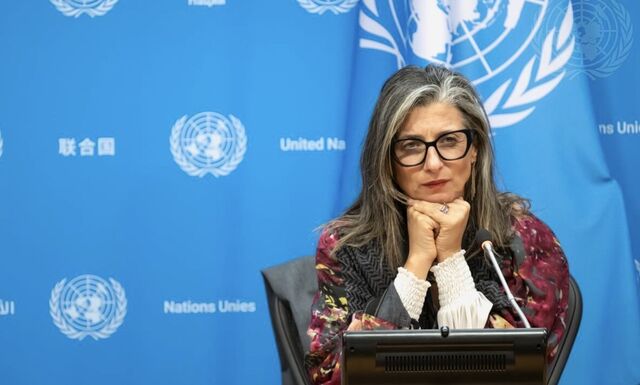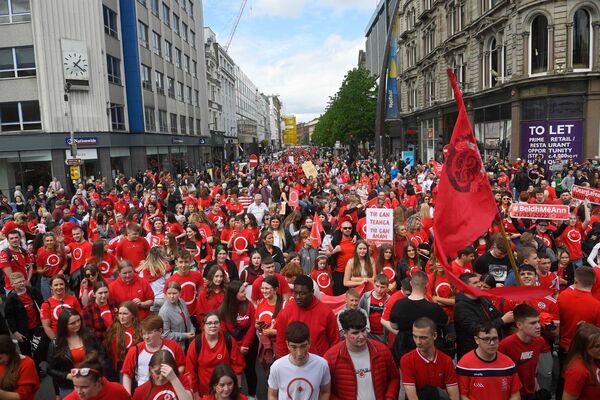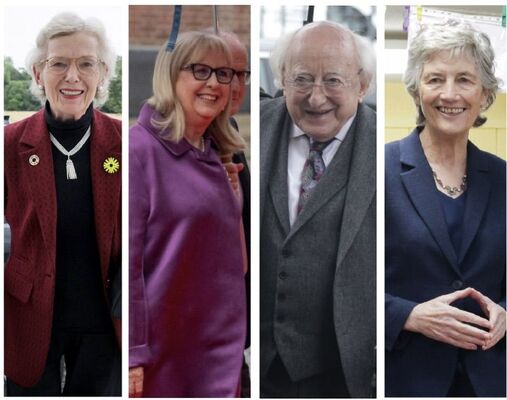
Andrée Murphy hails from Dublin but has lived in Belfast since 1994.
She is the Deputy Director of Relatives for Justice, a national victim support NGO which provides advocacy and therapeutic support for the bereaved and injured of the conflict. Holding a Masters Degree in international human rights law, Andrée's particular expertise and research on women affected by conflict trauma has seen her provide evidence to the United Nations in Geneva and to Congressional hearings in the US.
Andrée is a columnist for Belfast Media Group and is a regular contributor to broadcast media, providing political analysis and commentary.

ON a freezing cold Saturday night Dublin footballers won their first league game of the year against Monaghan. In post-game interviews team members refused to be filmed beside the hoarding of the League’s sponsors Allianz due to that company’s strong links to the Israeli state. Simple but determinative moments like this tell us where the people of Ireland stand on gross human rights violations, and crimes against humanity. That GAA officialdom is not listening to this is as instructive as it is shameful.

CATHERINE Connolly is undoubtedly a breath of fresh air to the Irish Presidency. Her daily lessons in how quiet respect can be more lasting, effective and powerful in a world dominated by the exact opposite qualities is something we can all be very proud of.

IT'S amazing and instructive where the red lines are drawn. Red lines should and need to be drawn on sustained engagement with an international extortioner and procurer of children for rape. It is long overdue, even if the line is a little more light pink than red if we are colour-coding actual accountability for such crimes. But I am simultaneously interested in the crimes, and the criminals, and the people with contact with criminals, that go without sanction.

WE live in a world where fascism is here and just about in the ascendancy.

COLONIALISM is back, baby! And it's as greedy and inhumane as it ever was.

WHEN the American Department of Homeland Security ICE militia murdered Renee Nicole Good they followed a tried and tested method for state murder: justification and cover-up.

THE New Year’s honours from the British King always have an added frisson here. Who in our shared society with a contested view of the legitimacy of the King’s dominion over us will accept the 'honours'?

THE most important challenge in 2026 will be the protection of human rights and human rights defenders. News over the holidays that Francesca Albanese is facing 'sanctions' from the United States for her vocal opposition to genocide, while Benjamin Netanyahu is invited to Mar-a-Lago at Trump’s invitation, highlights exactly where we are right now. That this has happened without immediate uproar in her defence speaks to the sinister international climate.

STANDING in Dublin airport waiting for a loved one to come home, surrounded by others also waiting to see who comes through the automatic doors. A guy with a guitar calling for requests before launching into Rocking Around the Christmas Tree. The sound of clinking Duty Free bags as the very last minute precious cargo bangs off wheelie cases. Dings of phones with texts saying 'Will you be much longer? The traffic guy is handing out tickets.'

IF you live in the South of Ireland you live in a state where 63% of young people go to third level education. In West Belfast it is 29.7%, the lowest in the North.

IN a long 164 pages that spends much time justifying its own existence and approach, the Kenova Report will leave many people wondering how £40 million could be spent by the state investigating historic murders and practices, with only one prosecution and zero chances of further prosecutions, no admission of liability from any actor to the conflict, and no formal accountability.

IN August 1993, Sinn Féin in Belfast marched for the first time to Belfast City Hall. It was a seminal moment, led by republican women, when the right to march, assemble and express republican opinion in Belfast was made visible as thousands remembered internment, and also gave expression to the growing momentum for a just peace.

THERE are things that seem like a really good idea at the time but then experience prompts us to ask if they really are.

WHEN Mary Robinson was first elected to the Presidency there was a sense of “shift”. The South of Ireland gave its first sign that it was breaking the hegemony of Fianna Fáil and Fine Gael, and was more outward-looking.
THE combined actions and inactions of the DUP and the Orange Order this week tell of a unique local psychosis of being at once deeply insecure and at the same time incredible arrogant. How lovely to have a home-grown disorder. It is almost as if they don’t want the place to work at all.